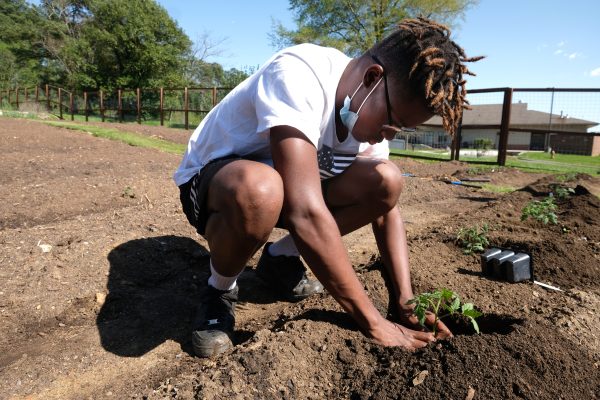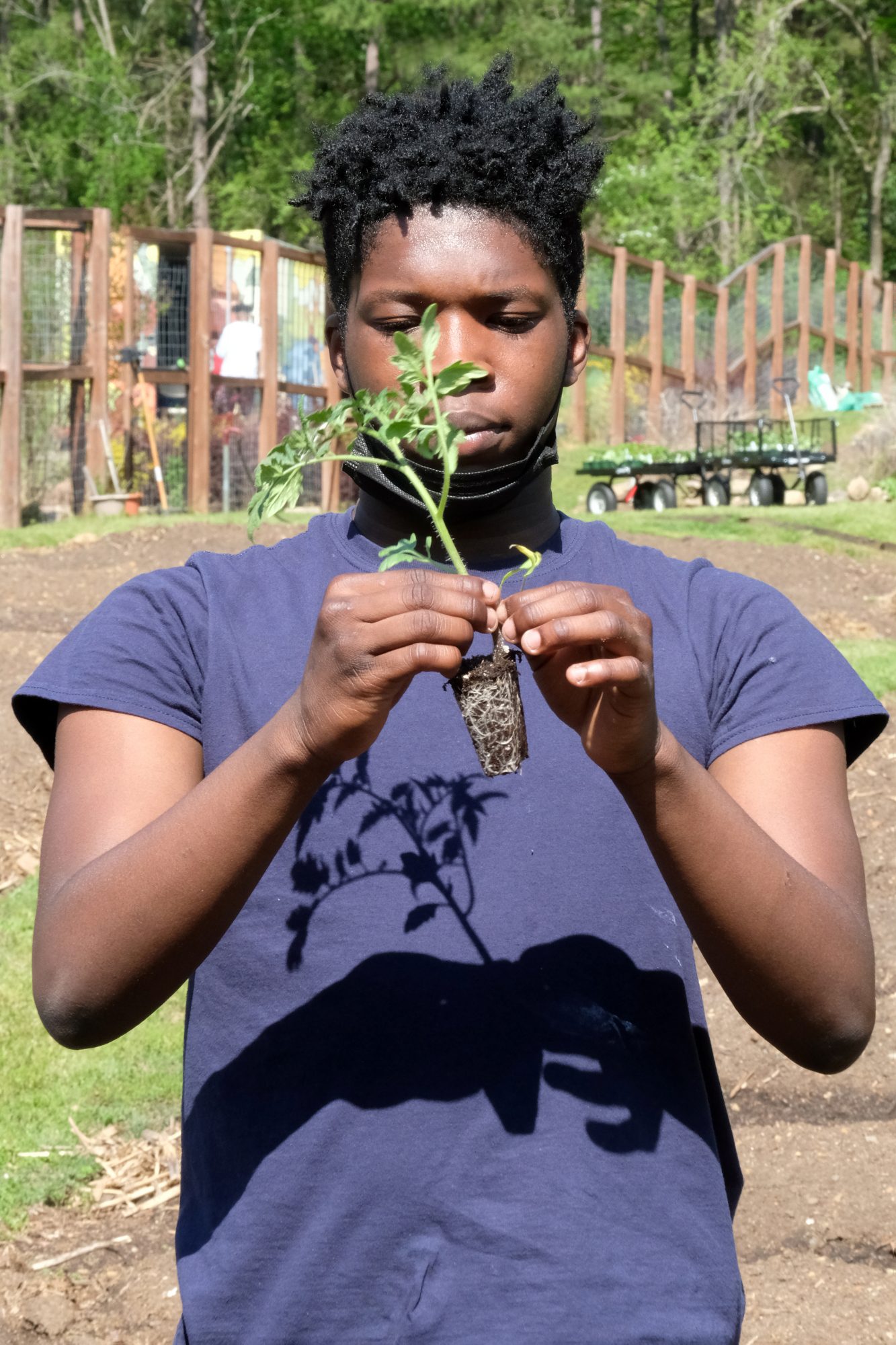Bringing the vision into focus: Study groups zero in on West Charlotte food retail innovation

Bringing the vision into focus: Study groups zero in on West Charlotte food retail innovation
By Mae Israel
After weeks of research, a market study and discussions, a group of researchers from UNC Charlotte and Johnson C. Smith University, along with West Charlotte community experts who have been working on ways to increase food access in their communities have zeroed in on an innovative strategy
The emerging plan would build on the community’s vision of a resident-owned co-op that offers healthy food while enlisting civic-minded partners and investors and professional general management. It would be branded and marketed to serve neighborhood residents and celebrate the community’s cultural heritage while also attracting shoppers from outside the area.
The concept grew from the second phase of an initiative called the Community Innovation Incubator that is being facilitated by UNC Charlotte’s Office of Urban Research and Community Engagement. 
In a community where canned and processed, high-salt foods are often more easily accessible than fresh vegetables, the market would feature fresh produce, healthy non-perishables, quality meat and healthy prepared foods. It would include educational programming on healthy eating and related subjects, and, crucially, creative pricing structures would be used to make products affordable in order to compete with big-box retailers and convenience stores.
“I’m optimistic, beyond optimistic,” said J’Tanya Adams, founder and executive director of West End Partners, a non-profit that focuses on economic development in the Beatties Ford Road corridor. She was describing her feelings at the end of a four-hour session when all group members came together through video conferencing to finalize strategies for an economically viable food retail operation.
“I’m excited and hopeful seeing the progress we’ve made in a short period of time,” said Nadia Anderson, associate professor of architecture and urban design at UNC Charlotte.
The dozen incubator participants split into small groups to study different aspects of a potential food retail solution, reaching out to some 40 experts, research documents and reports. They will now move to the final phase of their work: Devising a detailed, actionable plan to make the concept a reality.
Working in small groups, they’ll bring in potential investors and partners, as well as experts in all areas of food retail operations. The group will develop specific recommendations to present to Mecklenburg County commissioners in the coming months. County officials, who have ranked addressing food insecurity and food deserts as a top priority, approved a $272,000 grant to UNC Charlotte for the design project. photo by Nancy Pierce
The goal is to deliver specific plans and connections that will lead to the construction of a food market, particularly in the West Boulevard corridor, where efforts to lure a full-scale grocer have failed over the years. A lack of access to cars and long bus rides make it difficult for many residents to travel to areas with full-service grocery stores, many of which are concentrated in wealthier, predominantly white neighborhoods.
Hashing out next steps
During the half-day session on food retail strategies, study group members spoke directly and passionately about the details of the project. How should it be branded? What foods should it offer? Is fresh meat a necessity? Representatives of West Charlotte neighborhoods made sure their perspectives were heard on every category of discussion.
When the group considered seven key components of a co-op market, one item on the initial list was nonperishable goods. That was changed to healthy nonperishables, to put the focus on the need to raise the quality of food available to residents.
 One member questioned whether it would be realistic to commit to providing fresh meat, since providing both fresh produce and fresh meat is a challenge for food markets, particularly because of supply chain related-issues.
One member questioned whether it would be realistic to commit to providing fresh meat, since providing both fresh produce and fresh meat is a challenge for food markets, particularly because of supply chain related-issues.
“If we went into this initiative thinking we want to offer something full service to the community, I don’t know how we can do that without offering quality meats,” said Debra Terrell, associate professor of psychology at Johnson C. Smith University.
Reggie Singleton, a community health coordinator for Mecklenberg County and founder of The Males Place, a mentoring program for Black youth, responded, “If we can’t provide full service and healthy alternatives, how are we ever going to change any of the maladies that people are suffering from?”
Providing fresh meat remained on the list of key components for a market.
photo by Nancy Pierce
In deciding to seek construction of a co-op market, the study group acknowledged that its decision was informed by the proposed Three Sisters Market, a project of the West Boulevard Neighborhood Coalition to be located at West Boulevard and Clanton Road.
A market analysis of sites along the West Boulevard corridor showed that while the population was consistent with locations of grocers like Aldi, Lidl and Food Lion, residents’ incomes are lower than in areas where those grocers traditionally build supermarkets. The study group determined, however, that unearned income such as government food subsidies increases the collective spending power of residents and that creative marketing, built around a distinct cultural identity and programming, would allow the enterprise to reach a market beyond the immediate area.
The group hopes that its solution will go beyond helping one part of Charlotte increase its access to fresh food.
A co-op market, according to the study group, could serve as a catalyst for a community-based ecosystem with a focus on racial equity through activities associated with food. If successful, their efforts could serve as a model for other communities in Mecklenburg County.
But they know the hardest part of the process to bring a food retail operation to West Charlotte is just beginning.
Much of the research is completed. The guidelines for what should be built are established. UNC Charlotte and JCSU researchers, along with West Charlotte residents, now have to convince investors, food suppliers, residents and others to embrace the vision — and invest in it.
“It’s going to take a lot of relationship building and community building,” said Byron White, UNC Charlotte’s associate provost for the Office of Urban Research and Community Engagement, “to zero in on how this would work.”